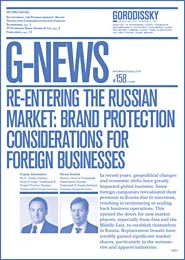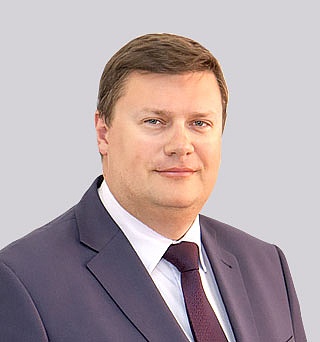Range of benefits for companies domiciled in SARs significantly expanded
4 June 2021Introduction
In 2018 Russia adopted Federal Law 290-FZ on International Companies and International Funds, which introduced the possibility for foreign companies to 'redomicile' (ie, change their personal law from foreign law to Russian law) for the first time. Having decided to redomicile, a foreign company can 'move' to Russia, ceasing to exist in the country of initial registration and transferring its activities to Russia in accordance with its legislation. In doing so, the company retains its status, structure, property and other rights and contractual obligations.
However, a foreign company cannot redomicile to the territory of Russia – only to one of its special administrative regions (SARs):
- Oktyabrsky Island (Kaliningrad Region); or
- Russky Island (Primorsky Region).
These SARs are 'internal' offshore zones to which companies can move from 'external' offshore zones.
Requirements
Several requirements must be met in order for a foreign company to redomicile to Russia:
- it must be a commercial corporate entity;
- the law of the country where it was initially registered must allow a change in the company's personal law and re-registration in another jurisdiction; and
- on being redomiciled to Russia, the company must submit confirmation of its exclusion from the register of legal entities in the country of initial registration.
IHC status
After redomiciliation, a foreign company may obtain the status of an international holding company (IHC), which entitles it to certain benefits. In order to obtain IHC status, a company should:
- be initially registered (established) in a country that is a member or observer of such anti-money laundering international organisations as the Financial Action Task Force (FATF) and MONEYVAL;
- carry out business activities in the territory of several countries (including Russia), directly or through controlled persons;
- file an application to conclude an agreement on operating as an SAR participant; and
- undertake to invest at least Rb50 million in Russia. Such investments may be both direct, in the form of investments in productive assets, or contributions to the authorised capital of Russian organisations.
Initially, the law also provided for the collection of an annual registration fee from IHCs, which was to be enshrined in the Tax Code. However, the relevant provisions have yet to be introduced into Russia's tax legislation, so this fee is not being collected at present.
If an IHC was established in the country where it was initially registered before 1 January 2018, has controlling persons who were appointed before 1 January 2017 and submitted to the Russian tax authority its financial statements for the previous financial year (confirmed by an audit report) within 15 days from the date of its registration in Russia, it will have the right to the following benefits:
- The IHC need not take into account the profits of controlled foreign corporations (CFCs)(1) when determining the tax base for income tax if it has IHC status as at the date of determination of these profits. This benefit applies until 1 January 2029.
- The IHC has the right to apply a 0% corporate income tax rate to dividends received, provided that it owns at least a 15% share in the authorised capital of a subsidiary for at least 365 days continuously as at the date of payment of dividends and the subsidiary is not registered in an offshore zone.
- The IHC may also apply a 0% corporate income tax rate to income from the sale of shares of other companies, provided that it also owns at least a 15% share in the authorised capital of the company whose shares are traded for at least five years. The company whose shares are being traded should also not be registered in an offshore zone. In addition, no more than 50% of the assets of such an organisation may consist of immovable property located in Russia as at the last reporting date before the retirement of shares.
The shareholders of such an IHC also enjoy a special benefit – namely, the withholding tax rate for dividends is 5% if paid to foreign shareholders, provided that the company is public. This reduced rate will apply to income earned before 1 January 2029.
In addition to tax benefits, IHCs are not recognised as currency residents of Russia, which avoids many formalities which apply in international currency transactions.
Recent amendments
On 7 March 2021 Federal Law 17-FZ entered into force, introducing numerous amendments to Federal Law 290-FZ. These amendments mainly expand the opportunities for international companies to redomicile to Russia and for IHCs to enjoy tax benefits. The most significant amendments include the following:
- The list of international organisations which a country in which a foreign company was registered can recognise in order for the company to redomicile to Russia has been expanded. In addition to the FATF and MONEYVAL, numerous regional organisations have been added to the list, such as the Eurasian Group on Combating Money Laundering and Financing of Terrorism, the Asia Pacific Group on Money Laundering and the Eastern and Southern Africa Anti-money Laundering Group. These amendments remove almost all geographical restrictions on the relocation of foreign companies to Russia. Now, a company may redomicile to Russia from almost any jurisdiction, including ones which were previously popular among Russian businesses, such as the British Virgin Islands, the Marshall Islands and the United Arab Emirates.
- 'Transit redomiciliation' (ie, when a company has already changed its personal law and moved from its initial jurisdiction to another and now intends to redomicile again, this time to Russia) has been introduced. In addition, for the purposes of obtaining IHC status, such a company will be considered established from the date of its initial registration in the country where it was located on the date of its establishment.
- If a company with IHC status joins another company with a similar status (albeit from a different SAR), the newly formed company will retain its preferential status. However, if a foreign company which does not have IHC status joins an IHC, the newly formed company will lose its preferential status.
Comment
In general, the experiment of creating Russian internal offshore zones for companies which redomicile from abroad is developing successfully. In the more than two years in which this mechanism has existed, several dozen foreign companies have moved to Russia, become SAR residents and obtained IHC status.










